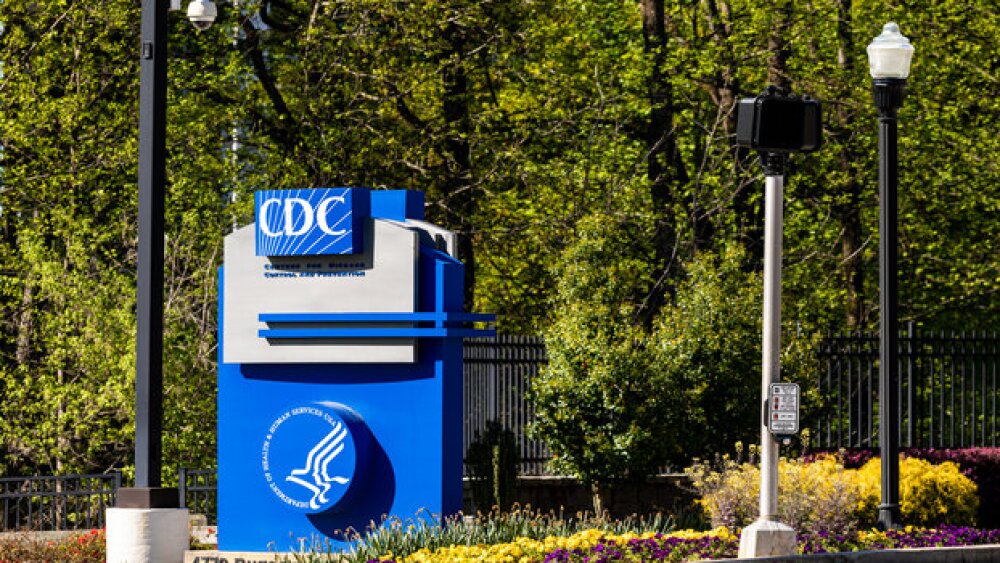The following statement is attributed to Mindy Brashears, Ph.D., USDA Under Secretary for Food Safety, and Frank Yiannas, FDA Deputy Commissioner for Food Policy and Response. [19-May-2020] SILVER SPRING, Md. , May 19, 2020 /PRNewswire/ -- As the COVID-19 pandemic response continues, the U.S. Department of Agriculture and the U.S. Food and Drug Administration have bee
The following statement is attributed to Mindy Brashears, Ph.D., USDA Under Secretary for Food Safety, and Frank Yiannas, FDA Deputy Commissioner for Food Policy and Response.
SILVER SPRING, Md., May 19, 2020 /PRNewswire/ -- As the COVID-19 pandemic response continues, the U.S. Department of Agriculture and the U.S. Food and Drug Administration have been working around the clock on many fronts to support the U.S. food and agriculture sector so that Americans continue to have access to a safe and robust food supply. As a next step in carrying out Executive Order 13917, the USDA and FDA today announced a Memorandum of Understanding (MOU) to help prevent interruptions at FDA-regulated food facilities, including fruit and vegetable processing.
This is an important preparedness effort as we are approaching peak harvesting seasons, when many fruits and vegetables grown across the U.S. are sent to be frozen or canned. The MOU creates a process for the two agencies to make determinations about circumstances in which the USDA could exercise its authority under the Defense Production Act (DPA) with regard to certain domestic food resource facilities that manufacture, process, pack, or hold foods, as well as to those that grow or harvest food that fall within the FDA's jurisdiction.
While the FDA will continue to work with state and local regulators in a collaborative manner, further action under the DPA may be taken, should it be needed, to ensure the continuity of our food supply. As needed, the FDA will work in consultation with state, local, tribal and territorial regulatory and public health partners; industry or commodity sector; and other relevant stakeholders (e.g. Centers for Disease Control and Prevention, Occupational Safety and Health Administration) to chart a path toward resuming and/or maintaining operations while keeping employees safe.
We are extremely grateful to essential workers for everything they do every day to keep our pantries, refrigerators and freezers stocked. All of the food and agriculture sector -- whether it is regulated by the USDA or FDA -- are considered critical infrastructure, and it is vital for the public health that they continue to operate in accordance with guidelines from the CDC and OSHA regarding worker health and safety. As we work to get through the current challenge together, we remain committed to workers' safety, as well as ensuring the availability of foods, and that our food remains among the safest in the world.
Additional Information
On April 28, 2020, President Donald J. Trump signed Executive Order 13917, Delegating Authority Under the Defense Production Act with Respect to the Food Supply Chain Resources During the National Emergency Caused by the Outbreak of COVID-19, delegating the powers of the President under the DPA to the Secretary of Agriculture to ensure continuity of operations for our nation's food supply chain. The Executive Order gave the Secretary of Agriculture the authority to utilize the DPA if needed to require the fulfillment of contracts at food processing facilities. The MOU makes clear that the FDA will work with stakeholders to monitor the food supply for food resources not under the USDA's exclusive jurisdiction in order to prevent interruptions at FDA-regulated food facilities.
This action is another in a series of proactive steps the USDA and FDA have taken to maximize food availability following unprecedented disruptions the COVID-19 pandemic has caused to food supply chains that have been established and refined for decades.
Supporting Industry and Protecting Frontline Workers
Our nation's food and agriculture facilities and workers play an integral role in the continuity of our food supply chain.
The USDA and FDA have been working to ensure that frontline workers in food facilities and retailers that have remained on the job during this crisis have the information and resources they need for business continuity and to continue working safely, which includes mitigating the risk of spreading COVID-19. We continue to provide information and update frequently asked questions on both the FDA and USDA’s websites.
We will continue to work with facilities and farms, CDC, OSHA, and state, tribal, and local officials to ensure facilities and farms are implementing practices consistent with federal worker safety guidelines to keep employees safe and continue operations.
We are working with our federal partners who have the authority and expertise over worker safety to develop information on protecting worker health. We are also working with other federal partners to assist the food and agriculture industry in addressing shortages of personal protective equipment (PPE), cloth face coverings, disinfectants and sanitation supplies.
Monitoring and Securing Human and Animal Food Supply Chains 24/7
Throughout the pandemic, the USDA and FDA have been closely monitoring the food supply chain for shortages in collaboration with industry and our federal and state partners. We are in regular contact with food manufacturers and grocery stores.
We have issued guidances to ensure regulatory flexibility to safely reroute food that typically would be bought in bulk by food facilities and restaurants, like eggs and flour, directly to consumers.
Food Safety Reminders for Every American
As we continue to respond to COVID-19, we want to remind consumers that there is no evidence that COVID-19 has been transmitted by food or food packaging, as well as the importance of taking precautionary food safety steps to protect against foodborne illness pathogens such as Salmonella and E. Coli.
With respect to the safety of food across the U.S., both the USDA and FDA continue to use their respective authorities, including conducting inspections, as appropriate. The agencies also continue to monitor foods for hazards, work with industry on any potential or reported issues in their facilities, and conduct food recalls when appropriate. This applies to both domestically produced food and food that is imported from other countries.
Unlike foodborne gastrointestinal (GI) viruses like norovirus and hepatitis A that often make people ill through contaminated food, foodborne exposure is not known to be a route of transmission for SARS-CoV-2, which causes COVID-19.
With respect to foodborne pathogens, the CDC, FDA and FSIS continue to work with state and local partners to investigate foodborne illness and outbreaks. During this coronavirus outbreak, we will continue to operate to prepare for, coordinate and carry out response activities to incidents of foodborne illness in both human and animal food.
Additional Resources:
- USDA's COVID-19 Response webpage
- FDA’s COVID-19 Response webpage
- USDA and FDA’s MOU
- USDA's Food Supply and COVID-19 webpage
- FDA’s Food Safety and COVID-19 webpage
- FDA’s Voices Piece on Food and COVID-19
- FDA: Best Practices for Food Businesses During COVID-19
- Contact the FDA CFSAN Information Center
Media Contacts: USDA: press@usda.gov; FDA: fdaoma@fda.hhs.gov
![]() View original content to download multimedia:http://www.prnewswire.com/news-releases/usda-fda-strengthen-us-food-supply-chain-protections-during-covid-19-pandemic-301062202.html
View original content to download multimedia:http://www.prnewswire.com/news-releases/usda-fda-strengthen-us-food-supply-chain-protections-during-covid-19-pandemic-301062202.html
SOURCE U.S. Food and Drug Administration





